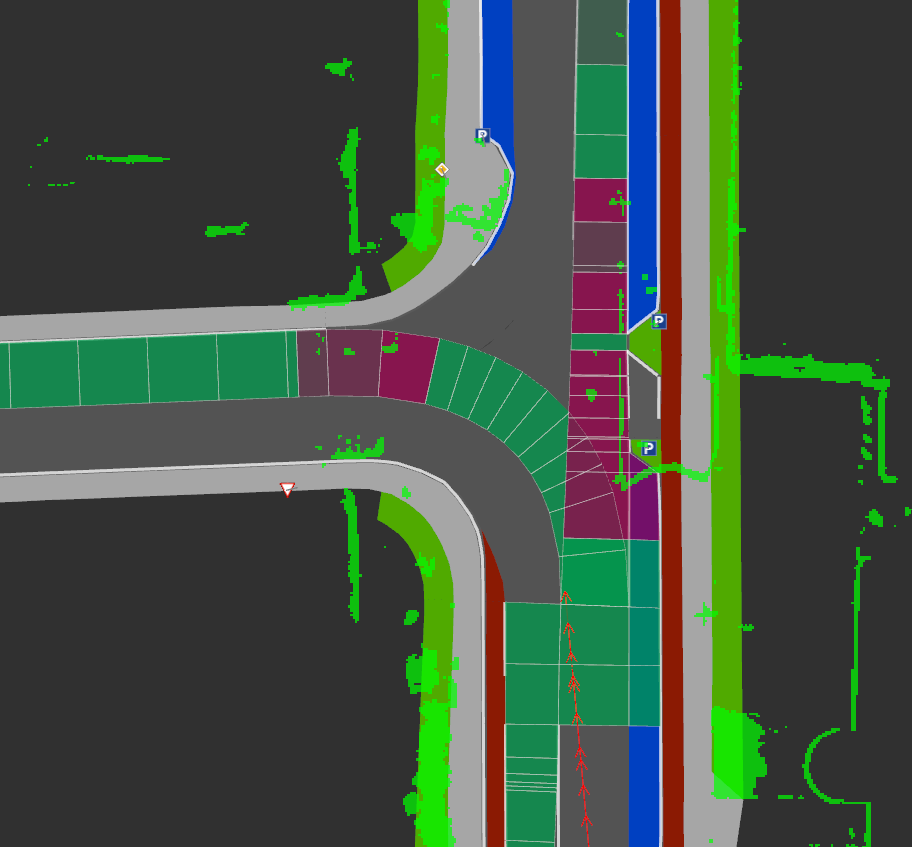
Submission Deadline
March 14th, 2020 (firm deadline, no extensions)
Submission through PaperPlaza (closed)
Workshop code: hr9k9

Archived Version
You are currently watching the archived version of the MaVRoC`20 workshop. You may find the current version here.
Do you want to get involved?
Given the positive feedback for MaVRoc`20, we're considering to organize MaVRoC`21.
If you want to get involved, send us a message!
Creation of validated road models both at runtime and offline, both from single vehicles as well as from a fleet of vehicles.
Life-cycle management of map data, i.e. initial creation, change detection, update, verification and deployment.
Mapping fraud detection and prevention, i.e. manipulation of traffic signs, fleet data spoofing.
Safe Automated Driving in a Changing World - Challenges and Trends
Map validation for autonomous driving – How to describe and verify accuracy, integrity and completeness of HD Maps
Sensible 4’s Solutions for Automated Driving in Urban Environment Enabling All-Weather Automated Driving Experience
Tencent HD Map Practice for Autonomous Driving in China

Submission Deadline
March 14th, 2020 (firm deadline, no extensions)
Submission through PaperPlaza (closed)
Workshop code: hr9k9

Notification Date April 18th, 2020

Camera-ready Deadline May 2nd, 2020
| Begin | End | Title | Speaker/Author | Type | |
|---|---|---|---|---|---|
| 08:00 | - | 08:10 | Welcome Session | Luca Parolini, Sebastian Schneider, Qing Rao, Jenny Yuan, Oliver Wasenmüller | |
| 08:10 | - | 08:35 | Tencent HD Map Practice for Autonomous Driving in China | Frank Gu | Invited Talk |
| 08:35 | - | 08:50 | Terminology and Analysis of Map Deviations in Urban Domains: Towards Dependability for HD Maps in Automated Vehicles | Christopher Plachetka, Niels Maier, Jenny Fricke, Jan-Aike Termöhlen, Tim Fingscheidt | Paper |
| 08:50 | - | 09:15 | Safe Automated Driving in a Changing World - Challenges and Trends | Christoph Stiller, Jan-Hendrik Pauls | Invited Talk |
| 09:15 | - | 09:30 | Real-Time Long-Range Road Estimation in Unknown Environments | Jenny Yuan, Gary Lu, Philipp Friedrich, Yixin Xu | Paper |
| 09:30 | - | 09:45 | Siamese Networks for Online Map Validation in Autonomous Driving | Felix Drost, Luca Parolini, Sebastian Schneider | Paper |
| 09:45 | - | 10:00 | Lidar-Based Deep Neural Network for Reference Lane Generation | Philipp Martinek, Gheorghe Pucea, Qing Rao, Udhayaraj Sivalingam | Paper |
| 10:00 | - | 10:10 | Break | ||
| 10:10 | - | 10:35 | Map validation for autonomous driving – How to describe and verify accuracy, integrity and completeness of HD Maps | Gunnar Gräfe | Invited Talk |
| 10:35 | - | 10:50 | Fast Lane-Level Intersection Estimation Using Markov Chain Monte Carlo Sampling and B-Spline Refinement | Annika Meyer, Jonas Walter, Martin Lauer | Paper |
| 10:50 | - | 11:05 | Correlation-Based Approach to Online Map Validation | Andrea Fabris, Luca Parolini, Sebastian Schneider, Angelo Cenedese | Paper |
| 11:05 | - | 11:30 | Sensible 4’s Solutions for Automated Driving in Urban Environment Enabling All-Weather Automated Driving Experience | Umar Zakir Abdul Hamid | Invited Talk |
| 11:30 | - | 11:45 | Sensor Fusion-Based Online Map Validation for Autonomous Driving | Sagar Bhavsar, Andrei Vatavu, Timo Rehfeld, Gunther Krehl | Paper |
| 11:45 | - | 12:00 | Closing Session | Luca Parolini, Sebastian Schneider, Qing Rao, Jenny Yuan, Oliver Wasenmüller |
Luca Paroloni received the B.Sc. degree in information engineering and the M.Sc. degree in automation engineering from the University of Padova, Padova, Italy, in 2004 and 2006, respectively and the Ph.D. degree in electrical and computer engineering from Carnegie Mellon University, Pittsburgh, PA, in 2012. He is a specialist S/W developer at BMW AG, Munich, Germany, which he joined in 2016. His research interests include functional development for autonomous vehicles, with a special focus on map and localization problems, functional safety, and functional degradation.
Sebastian Schneider received his Diploma degree in 2006 from Technical University of Darmstadt, Germany, with a major focus on computer vision and robotics. Since 2014, Sebastian works at BMW AG, Munich, Germany, as a sensor fusion expert in the area of driver assistance systems and autonomous driving. As such he has contributed to the design of the sensor setup as well as the sensor fusion architecture of upcoming level 4 autonomous vehicles. His current research interests include localization, map and road model validation and reinforcement learning.
Qing Rao received his Bachelor's degree in 2010 from Shanghai Jiao Tong University and his Master's degree in 2012 from TU Munich, with a major focus on computer vision and robotics. In 2019, he received his Ph.D. degree from TU Munich with the dissertation entitled Merging the Virtual and Real in a Car: In-Vehicle Augmented Reality. Since mid-2017, Qing works at BMW AG, Munich, Germany, as a machine learning expert in the area of autonomous driving. His current research interests include road model generation, 3D object detection, and active learning.
Jenny Yuan holds a master degree from Technical University of Munich in Germany. Her major research direction is related to deep-learning and image processing in the field of computer vision, such as object detection and classification.
Oliver Wasenmüller is full Professor at the Mannheim University for Applied Science. His research is in the intersection of Computer Vision and Artificial Intelligence with a focus on automotive. Previously he was a team leader for "machine vision and autonomous vehicles" at the German Research Center for Artificial Intelligence (DFKI). He is both speaker and reviewer in many scientific conferences in this field and co-organizes the ACM Computer Science in Cars Symposium (CSCS) as well as the IEEE CVPR workshop SAIAD.